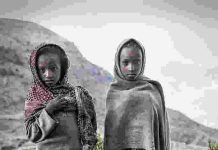The Neo Black Movement (NBM) of Africa, often mistakenly associated with various forms of violence or cultism in some contexts, is originally a socio-cultural organization founded in 1977 at the University of Benin, Nigeria. It was established with the aim of promoting Black consciousness, unity, human rights, and the fight against oppression, injustice, and racism—particularly among people of African descent. Over time, NBM has grown both in influence and in controversy, depending on regional interpretation and public understanding.
One major cultural element within the NBM is the concept of “Strong Names.” These names carry symbolic weight and represent the ideals, strength, and historical roots of the movement.
What Are “Strong Names” in NBM?
In the Neo Black Movement, “Strong Names” are powerful aliases or symbolic names given to members as part of their initiation into the organization. These names are usually derived from African history, mythology, resistance heroes, warriors, and sometimes from African deities. Each name is meant to reflect the strength, values, or legendary status of the person or concept it represents.
These names serve several purposes:
-
Identity within the group: Members are often identified within the brotherhood by their strong names rather than their real names.
-
Symbol of strength and transformation: Taking on a strong name marks a transition from the ordinary to the symbolic—a new commitment to the movement’s goals.
-
Security and secrecy: These names provide a level of anonymity to protect identities, especially in hostile environments or where the movement faces misunderstanding or crackdown.
Examples of Popular Strong Names in NBM
Below are some examples of well-known or commonly adopted strong names in the Neo Black Movement:
-
Shaka Zulu – Named after the iconic Zulu king and military innovator.
-
Nzinga – Inspired by Queen Nzinga Mbande of Angola, known for her resistance against Portuguese colonization.
-
Imhotep – Based on the legendary Egyptian polymath who contributed to architecture, medicine, and spirituality.
-
Sango – Refers to the Yoruba god of thunder, symbolizing power and justice.
-
Kunta Kinte – Drawn from the character in Roots, symbolizing resistance to slavery and loss of identity.
-
Mandela – In honor of Nelson Mandela, representing perseverance, peace, and anti-apartheid struggle.
-
Oba Akenzua – A historical figure from the Benin Kingdom.
-
Toussaint L’Ouverture – A revolutionary leader who led the Haitian revolt against slavery.
-
Lumumba – Reflects Pan-Africanism and African unity, named after the Congolese independence leader Patrice Lumumba.
-
Fela – Derived from Fela Anikulapo Kuti, the Afrobeat legend and vocal critic of corruption and dictatorship.
Each of these names is not just a label but a badge of honor that links the bearer to African heritage, courage, or intellect.
How Are Strong Names Assigned?
Strong names are typically assigned during the initiation process or in the early stages of a member’s journey in the NBM. The selection might be influenced by:
-
The individual’s personal attributes or personality
-
Aspirational traits the member desires to embody
-
Historical or mythical figures admired by the member or leadership
-
The region or local traditions of the zone
Members may sometimes choose their own names, but in many cases, names are given by senior members who understand the symbolic weight and implications of each name.
Significance in Brotherhood Culture
In NBM, strong names serve as a spiritual and cultural connection among members. They foster a sense of belonging, continuity, and deep identity within the larger Pan-African ideology. Using strong names enhances communication, instills discipline, and reinforces the values of bravery, solidarity, and resistance against oppression.
It is also common for these names to appear in communications, roll calls, events, and documentation within the movement.
Criticisms and Misconceptions
The adoption of strong names and the secrecy surrounding them have led to public misconceptions. Critics often associate them with cultist activities due to a lack of transparency or negative portrayals in the media. However, supporters argue that these names are symbolic tools of cultural awakening and solidarity.
It is essential to distinguish between the intentions behind the use of strong names in NBM and the actions of individuals who may misuse the ideology for personal or violent gain.
Frequently Asked Questions (FAQs)
What is the meaning of a strong name in NBM?
A strong name in NBM represents a symbolic identity that connects a member to African heritage, historical resistance, or spiritual strength. It is used to foster unity, anonymity, and purpose within the movement.
Are strong names in NBM chosen or given?
Strong names can be both chosen by the member or assigned by senior members during the initiation process. The name is usually based on personal traits, symbolic meaning, or admired historical figures.
Is the use of strong names in NBM secretive?
Yes, strong names are often used in private or closed group contexts to maintain identity protection, unity, and group traditions, especially in environments where the movement faces opposition or public suspicion.
Are strong names only used in Nigeria?
While the practice began in Nigeria, the use of strong names is now widespread among NBM members globally, wherever the movement has chapters or influence, including Europe, the Americas, and other parts of Africa.
Also Read: Navy Training Allowance

